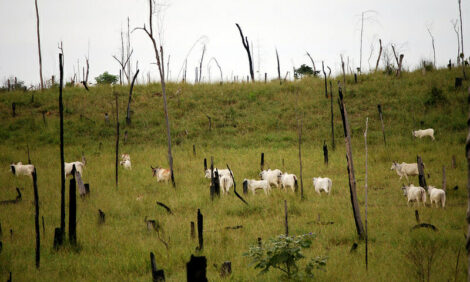



New System for Older Cattle Disposal
UK - NFU Scotland has been in talks with the Rural Payments Agency (RPA) and Defra seeking to avoid a huge financial cost on industry which could arise from the wind-down and closure of the government scheme to dispose of older cattle.The OCDS, introduced in 2006, has a three-year life-span and the rate of compensation reduces each year until the end of 2008 when the scheme closes. The 2007 rate is €324 (approx £218) per animal and this will drop to €292 in 2008. This inevitably creates pressure towards the end of the year as farmers seek to have older cows, that have finished rearing their latest calves, processed through the scheme before the rate drops. The pressure will be particularly acute in 2008, the last year of the scheme. From 2009, cattle born before August 1996 will no longer be eligible for compensation. Currently these animals are picked up free of charge as part of the UK’s TSE testing requirements, however this may change in future.
NFUS has been working together with other industry bodies to introduce an advance booking system to ensure efficient operation of the scheme. The new system is expected to be operational by the RPA next month. Under the new system, when farmers book an animal into an abattoir for the OCDS, they will have to provide a note of the ear tag number. To maximise available places, the RPA will then regularly screen bookings to eliminate animals that have subsequently died on farm or have been booked into more than one outlet.
The RPA is expected to issue information shortly to farmers and also open up a helpline for farmers needing information.
NFUS Vice President Nigel Miller, who has been involved in talks, said:
“Previously farmers have hedged their bets by booking in animals at a number of different sites in the hope that a slot becomes available at one of them. This has created the impression that the scheme is more crowded than is actually the case and has led to other cattle being turned away. Recording an ear tag number when booking in will take a bit more time, but will allow the RPA to eliminate unnecessary bookings and ensure everyone has better access to the scheme. The aim is that animals booked in by September will be processed before the end of that year. Starting the system this year will allow it to be tested and, if necessary, refined before the real pressure comes next year in the run-up to the scheme’s closure
“Across the UK, there are around 320,000 pre-August ‘96 cattle left on farms and OCDS has a capacity to process 170,000 a year. The RPA estimates that between 80,000 and 100,000 will remain on farm after 2008 because they still have breeding value. In other words, there is just about capacity to meet the demand for the scheme between now and its closure at the end of next year if the system can be operated efficiently. The RPA and government’s efforts on the new system have been extremely helpful and will hopefully pay off.”
TheCattleSite News Desk


